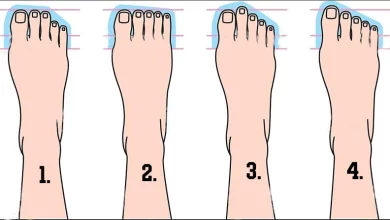6 Warning Signs of a Mental Illness Everyone Should Know
Doctors diagnose mental illnesses by looking at symptoms. The right diagnosis is critical because it points you to the right treatment, but psychiatric diagnoses can be tricky.
Symptoms of different mental disorders–like major depressive disorder, bipolar disorder, and postpartum depression, to name a few–often overlap, and disorders frequently occur together.
“Seeing a pure syndrome–in which the patient only shows the symptoms of one disorder without any symptoms of another–is pretty rare,” says Charles Nemeroff, MD, PhD, chairman of the University of Miami Health System’s department of psychiatry and behavioral sciences. One of the best examples of this, he says, is the overlap of anxiety disorders and depression. “Most people who are depressed are also anxious,” he says.
Research is now showing how much these conditions share in terms of genetics too, which means another aspect of pinpointing a mental health diagnosis is understanding a person’s family history. “These disorders are largely genetically driven, so they run in families, and that’s important to know,” Dr. Nemeroff says.
Having just one symptom on this list doesn’t necessarily mean you have a mental illness. There’s almost always more than one sign, and a psychiatrist making a diagnosis will take all of them into account. “We look at each of the symptoms and [how] they hang together,” Dr. Nemeroff says.
Only a trained specialist can make a definitive diagnosis, and different mental illnesses are characterized by different symptoms. But there are certain common warning signs to look out for in general. Typically, you’re looking for several of these symptoms that occur together–and for changes in behavior.
Withdrawal and apathy
Retreating into yourself and avoiding hanging out with friends or participating in social activities could be a sign of depression, bipolar disorder, schizophrenia, anxiety disorders, and more mental health concerns.
“The [person] is not being as interactive, maybe staying at home in their room more,” says Anita Everett, MD, president of the American Psychiatric Association.
That’s not to say that taking a little “me time” is a bad thing. Spending time alone can be an act of self care, but a loss of interest in the activities you once enjoyed could be a warning sign. As with most symptoms of mental illness, this isolation often represents a departure from past behavior, Dr. Everett says.
Emotional outbursts
At the opposite end of the spectrum from the quiet of withdrawal and apathy are what Dr. Everett calls “loud” features of mental illness. “These can be more in your face,” she says. “People are more irritable, more animated.”
Someone in the manic phase of bipolar disorder might be super-gregarious, talking very rapidly, or spending lots of money. A person with schizophrenia might be visibly distressed if they think they are being followed or spied on.
Problems with thinking
open next page to continue reading….



